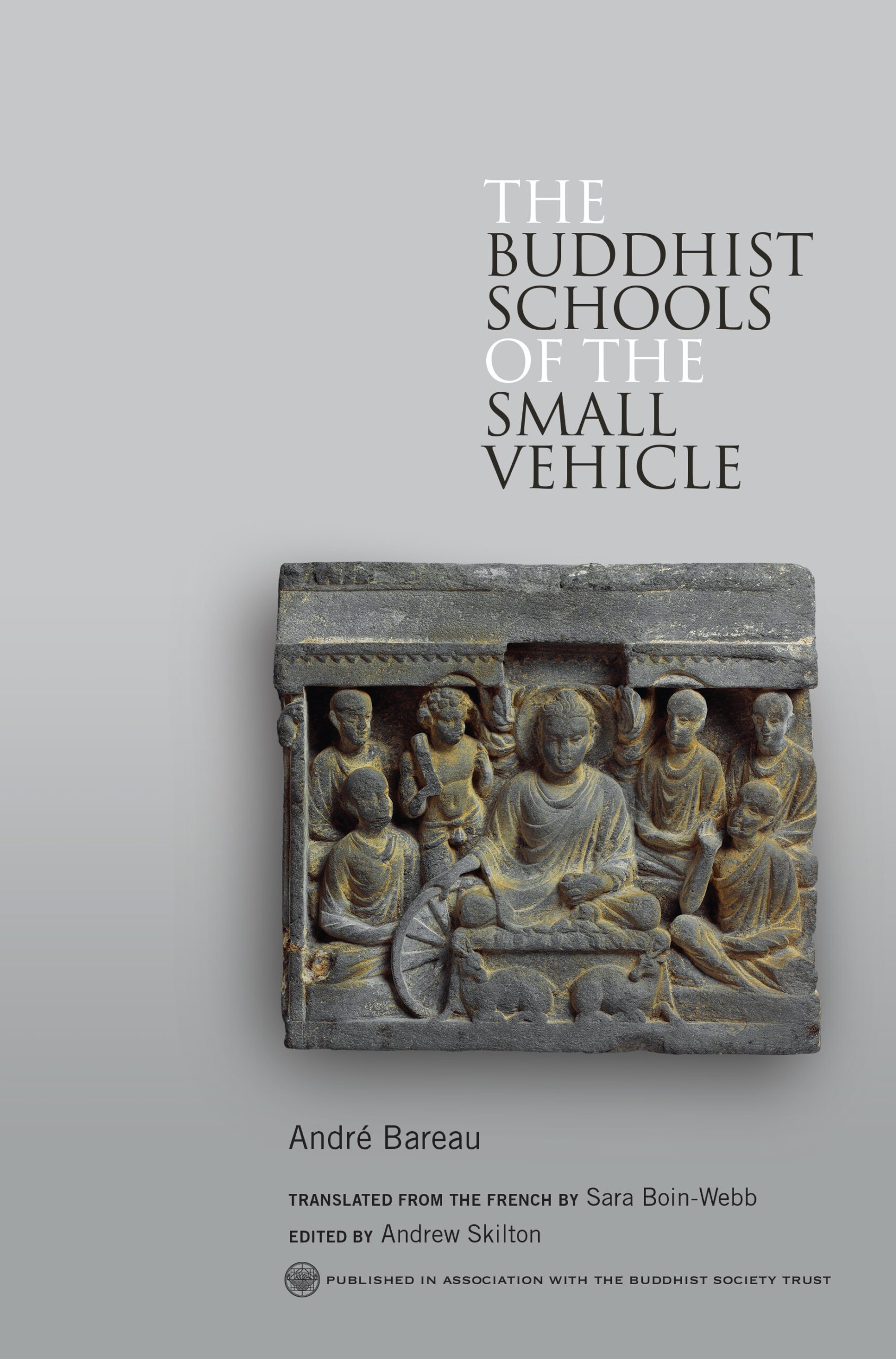The Buddhist Schools of the Small Vehicle
- About the Book
-
André Bareau (1921–1993) was one of the foremost scholars of Buddhism of his generation. Dissatisfied with piecemeal and contradictory information on early Buddhist schools, he set out to construct a coherent and authoritative overview, which has remained the standard treatment in the field since its appearance in 1955. This book offers a close description and analysis of Bareau’s findings on the history, geographical whereabouts, and doctrinal positions of early schools of Buddhism. He systematically presents data from a diverse array of sources: texts in canonical Buddhist languages (Pāli, Sanskrit, Tibetan, and Chinese), inscriptions, and accounts of Chinese pilgrims to India. The result is an encyclopedic resource on thirty-four schools of Indian Buddhism and the approximately five hundred doctrinal theses by which they are differentiated. Bareau’s genius was to conceive a plan to draw on an exhaustive range of primary sources preserved in all the major Buddhist languages and to conduct a comprehensive synthetic analysis, thus creating an authoritative picture. He provides several appendices, including summary tables of all doctrinal points discussed.
Several additions have been made to this, the first English-language edition of the work to increase the effectiveness of the original volume: an index of names and places, a supplementary bibliography, and a short essay on Bareau’s career and work. Complex diagrams have been redrawn, and the lengthy subject index table in Appendix 1 has been separated into separate tables to make the material more useable.
The Buddhist Schools of the Small Vehicle will be used by students and scholars as a primary resource and starting point for any discussion on the history and doctrines of early Buddhism and Buddhist schools. This seminal work is translated by Sara Boin-Webb, who across a career of four decades translated into English some of the most important French-language works of Buddhist scholarship.
- About the Author(s)
-
André Bareau, Author
Born in Paris, André Bareau forged a career in the interpretation of Buddhist doctrine from textual sources that led him to become a professor at the Collège de France and a world authority on early Buddhism. He published several books, including several definitive volumes on the biography of the Buddha taken from the Sūtra and Vinaya collections of the Buddhist canon, and more than one hundred scholarly articles.Andrew Skilton, Editor
Andrew Skilton is a scholar of the Buddhist history and literature of South, Southeast Asia. He studied Buddhism and Buddhist languages at the universities of Bristol and Oxford, where he did his Ph.D. on the Samādhirājasūtra, a major Mahāyāna scripture, examining its Chinese, Tibetan, Sanskrit, and Buddhist Hybrid Sanskrit recensions. He was senior lecturer in Buddhist studies at Cardiff University and associate lecturer and research fellow at SOAS, London. He is now senior research fellow in Buddhist studies in the Theology and Religious Studies Department at King’s College, London, and also manages the Revealing Hidden Collections Project at the Bodleian Library, Oxford. His publications include A Concise History of Buddhism, The Bodhicaryāvatāra (with Kate Crosby), and How the Nāgas Were Pleased.Sara Boin-Webb, Translator
Sara Boin-Webb, Translator
- Reviews and Endorsements
-
- Bareau’s Les sectes bouddhiques was—and remains—a highly influential contribution to the study of Indian Buddhism in general, and of the doctrinal debates of the various schools or sects of Indian Buddhism in particular. More than half a century after its original publication, Les sectes remains a standard reference work. . . . This book will stimulate research for years to come. . . . A reliable English translation of this work, then, is a welcome and timely contribution. It will be of interest to upper-level undergraduate students in Asian religions, Asian history, and philosophy. It will be required reading for graduate students in Asian religions.
—Shayne Clarke, McMaster University - Bareau’s Les sectes bouddhiques has meant two things in particular: first, that subsequent scholars have had a reliable work of reference as a starting point for their own researches and discussions; and secondly, that his work has yet to be superseded.
—Rupert Gethin, president, Pali Text Society
- Bareau’s Les sectes bouddhiques was—and remains—a highly influential contribution to the study of Indian Buddhism in general, and of the doctrinal debates of the various schools or sects of Indian Buddhism in particular. More than half a century after its original publication, Les sectes remains a standard reference work. . . . This book will stimulate research for years to come. . . . A reliable English translation of this work, then, is a welcome and timely contribution. It will be of interest to upper-level undergraduate students in Asian religions, Asian history, and philosophy. It will be required reading for graduate students in Asian religions.
- Supporting Resources
-





